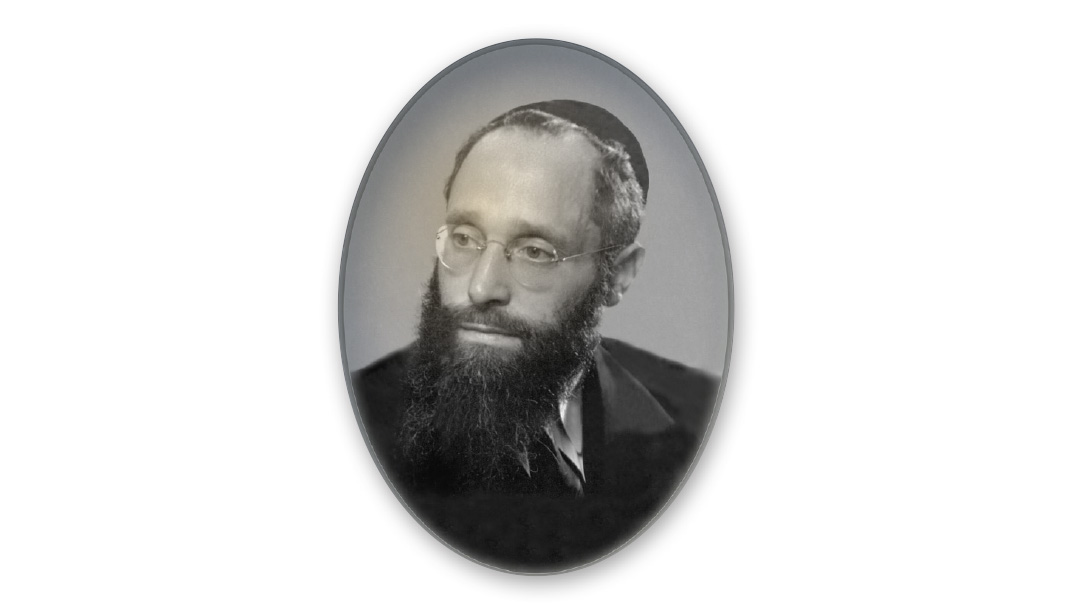Fueled by Fire

With a burning sense of mission, Rav Elya Meir Bloch resurrected Telshe yeshivah in America's spiritual wasteland

MY grandfather, Reb Elya Meir Bloch, whose 70th yahrtzeit was last month on 28 Teves, was a survivor and a builder. One fueled the other. After losing his entire family in the Holocaust except for one daughter, my mother, he felt driven to justify his survival by reviving the Torah community that had been decimated.
When Rav Elya Meir arrived in America in 1940, intending to rebuild a world that had gone up in flames, others thought he was indulging in wishful thinking. America was the New World, they reasoned. There was no place to replicate the yeshivos of Europe. However, he was undeterred by popular opinion, as the following anecdote shows. Wishing to purchase a Ketzos Hachoshen, a classic sefer in the litvish derech halimud, Rav Elya Meir trekked up and down the Lower East Side, then the center of the fledgling frum community in New York, without success. Finally, the proprietor of one Judaica store found him the coveted sefer. “Rebbi,” he said, as handed Rav Elya Meir the dusty volume, “this is the last Ketzos in America.”
Rav Elya Meir, who had lost so much but still held on to his drive to rebuild, looked at the man and responded. “No, my friend,” he said. “You are mistaken. This is the first Ketzos in America.”
My grandfather sincerely believed that regenerating Torah in America was his sacred duty and that this mission was the reason Hashem had spared him from the inferno of the Holocaust. In the notebook where he recorded his Torah thoughts, in the middle of a shtickel Torah, there is a chilling entry.
“I have just received official confirmation of my worst fears — my family was decimated by the Nazis.
“If someone will look through this notebook and see that I’m continuing to write Torah, and wonder ‘how could he?’ he should not deem me heartless and cruel. To the contrary: It is this terrible news that drives me on to learn and to teach Torah incessantly. This is what Hashem spared me for. I am no longer a private citizen with a private life. I belong to Klal Yisrael. I am my mission.”
This sense of mission wasn’t just a momentary inspiration; it defined him for the remainder of his life.
MY mother once complained to her father that her husband, my father Rav Leizer Sorotzkin, was spending more time fundraising for the yeshivah than saying shiur. My grandfather responded emphatically, “We exist for the yeshivah, not the yeshivah for us. We must each contribute our unique talents. If I thought the yeshivah would benefit more by me being the janitor, so it would be.” My mother walked away disappointed, but didn’t argue. She knew her father meant every word.
This same sense of mission was behind his decision to choose Cleveland, then a bastion of Reform Jewry, as his base for transplanting the glory of the Telshe yeshivah in Europe to America. His line of reasoning was simple: He felt this was where he was needed most.
His relationship with the nonreligious locals was formed through the same lens. When Abba Hillel Silver, rabbi of the premier Reform temple in America, expressed a desire to join the yeshivah for the Purim seudah, Rav Elya Meir replied, “If you wish to come here as a Yid who desires to experience a Torah-true Purim, you’re more than welcome. If you want to come here as Rabbi Abba Hillel Silver, you are not welcome.”
Rav Elya Meir never thought he had done enough to allow him to rest on his laurels. After opening a yeshivah, he immediately went about opening other Torah institutions. The girls’ school started small — he found four girls whose families were willing to take them out of public school, and informed my mother that as of the next day, she’d be teaching them. She shrank back in horror. “I never taught in my life, I don’t have a good English, and I’m not familiar with the American mentality,” she told him. Her father gazed at her sternly. “There is no one else to do this job!” he exclaimed. Not another word had to be said.
Looking back, 70 years after Rav Elya Meir rejoined his family On High, it’s obvious that his goal of transforming Cleveland into a bastion of Torah and emunah like the original Telshe in Lithuania, was eminently successful. Today, Cleveland is one of the finest out-of-town Torah communities in all of America, thanks in no small part to my grandfather, a gadol and a Holocaust survivor with a burning sense of mission.
Rabbi Yosef Sorotzkin is the rosh yeshivah of Yeshivas Me’or Eliyohu in Telz Stone, Eretz Yisrael. He is the author of Meged Yosef al haTorah.
(Originally featured in Mishpacha, Issue 1049)
Oops! We could not locate your form.







